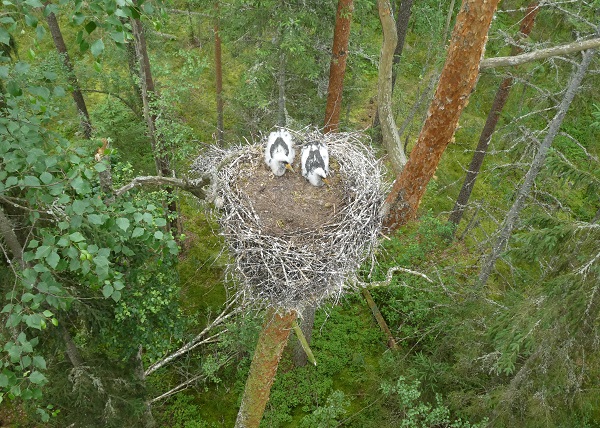The Monitoring of Black Stork Nesting Success has been Completed
The monitoring of the nesting success of the specially protected bird species – the black stork – has been completed. The project is implemented by JSC “Latvia's State Forests” (LVM) within the framework of a project financed by the Nature Protection Board.
By inspecting black stork nests in a number of different properties, during the monitoring the nest population and nesting success are evaluated; any unsuccessful eggs are also collected for their further chemical analysis. The information that has not been analysed yet shows quite different nesting successes in different regions of Latvia. Often 3–4 young storks were found in the nests.
During the monitoring, an uncharacteristic nesting of black storks was also discovered – near Dundaga, upon inspecting a stork nest that has not been inhabited for the last five years, it was found that this year the nesting site is inhabited again. It is interesting that the nest is located in a dry tree, which is uncharacteristic and is considered a rarity. Respecting this black stork's nest, LVM has ensured that economic activity here is strictly limited.
Approximately 80% of the known black stork nesting sites in Latvia are located in the forests managed by JSC “Latvia's State Forests”. Monitoring of nesting population and nesting success is carried out in order to plan appropriate conservation measures and assess population trends, which have been negative in recent decades.



